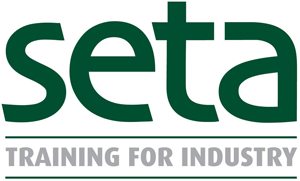British Values
What are British Values?
SETA aims to promote British Values to our learners to ensure that they are prepared for life in modern Britain.
Learners are encouraged to regard people of all faiths, races and cultures with respect and tolerance, and understand that while different people may hold different views about what is ‘right’ and ‘wrong’, and that all people living in England are subject to its law.
The key values are:
· Democracy
· The rule of law
· Individual liberty
· Mutual respect
· Tolerance of different faith & beliefs
Why are they important?
We promote these values as we believe they give learners a sense of moral and social responsibility. We believe that with an understanding of fundamental British values, learners will develop their self-knowledge, self-esteem and self-confidence, encourage respect for other people, and understand how they can contribute positively to society.
How does SETA embed these in what we do?
Our programme of learning incorporates and promotes these values:
Democracy – by listening to our learners’ opinions, encouraging them to consider the opinions of their peers, and promoting the use of joint decision making within the tasks they perform. Making decisions together, but having the right to an opinion/voice. A good example of this is the Apprentice Council. It provides a formal channel for apprentices to represent their views about SETA, and to contribute to improvement in all aspects of the SETA life.
Rule of law – by adhering to policies and implementing rules throughout our Centres, including the workshops and classrooms. Understanding rules and why they are important, and appreciating that no-one is above the laws of the British Government, or the rules set out for time spent at SETA.
Individual Liberty – by encouraging our learners to have the freedom to respectfully share their thoughts and opinions by making informed choices, just so long as the rights and responsibilities of others are respected. Learners are encouraged to voice views in lessons.
Mutual respect – This involves having a fair and accepting attitude to those with faith, background and/or beliefs that may differ from their own. Treating others as you want to be treated.
Tolerance – by understanding that we don’t all share the same beliefs and values. We encourage our learners to respect the values, ideas and beliefs of others whilst not imposing their own on other people. This includes embracing diversity, promoting awareness of religion, traditions, cultural heritage and preferences, as well as tackling stereotyping, prejudice and discrimination.

.png)
















